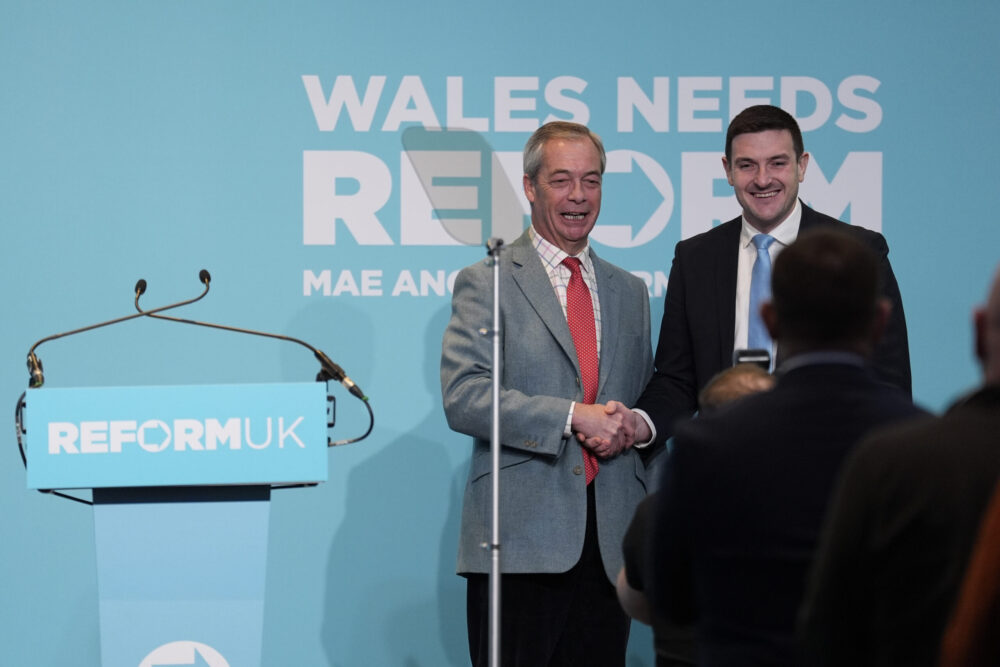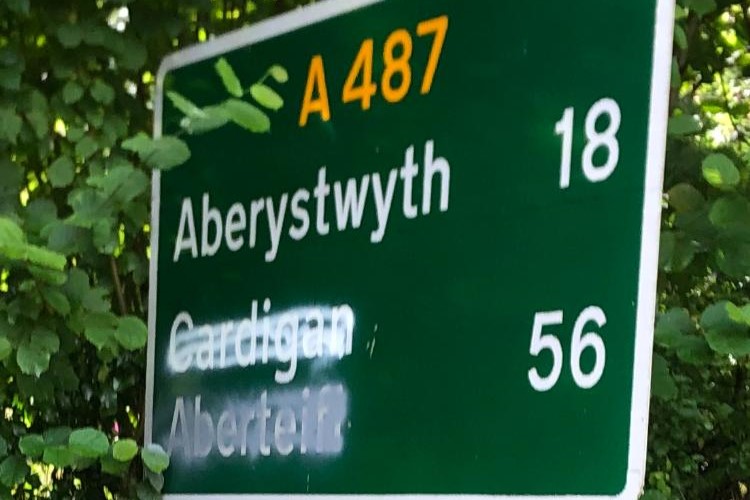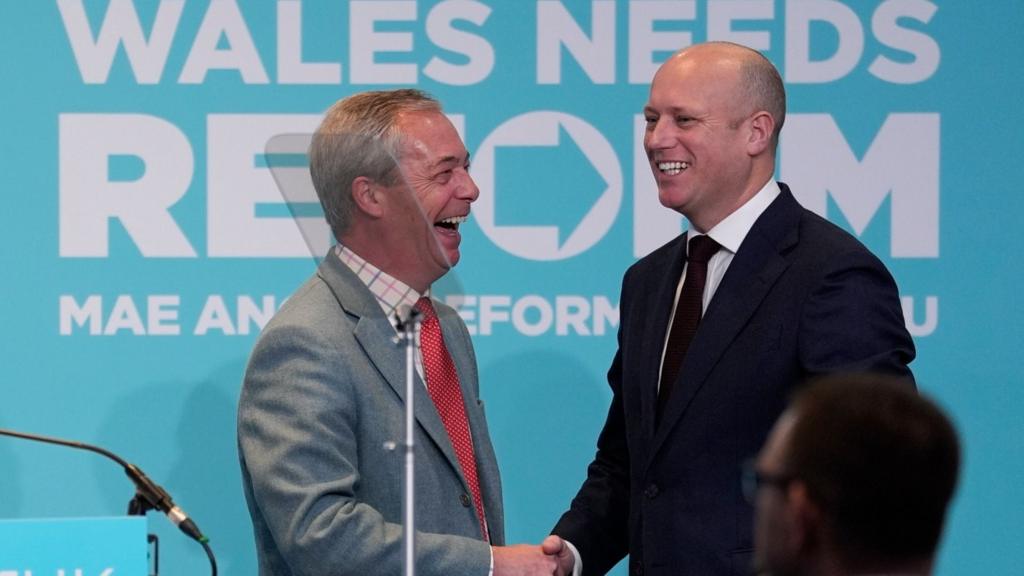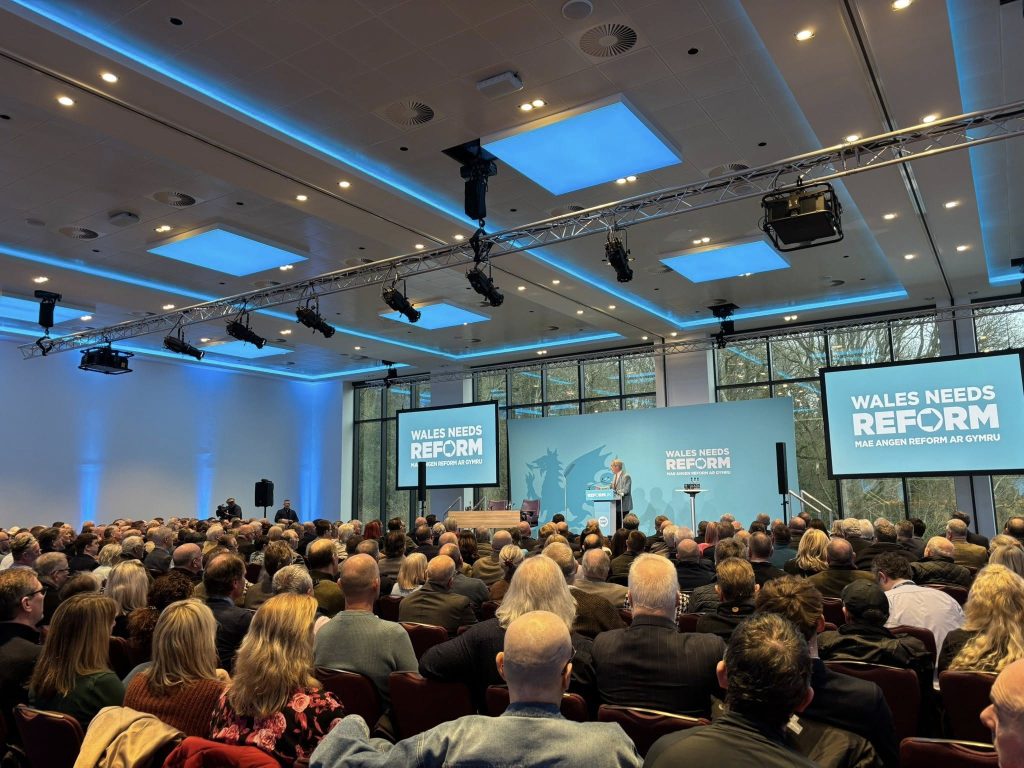Politics
Independent Group’s claims debunked by Cabinet Member for Finance

- Council is in turmoil as councillors grapple with how much to increase Council Tax
- Cabinet Member for Finance says Council Tax claims made in an email wrong
A CLAIM made in an email from the opposition “Independent” Group (IPG) to Council Leader David Simpson is ‘wrong’.
The email’s central claim that householders could be, in three years, paying an extra £1000 in Council Tax, has been debunked by Cabinet Member for Finance, Cllr Alec Cormack.
In this week’s news section this newspaper reports on that emailed claim.
The email says that the current administration could increase council tax by 16.31% not only for 2024/25 but also increase it by the same amount in 2025/26 and 2026/27.
That claim is wrong, Cabinet Member for Finance, Cllr Alec Cormack has said.
The Council’s Medium-Term Financial Plan (MTFP), to which Cllr Murphy refers to as the authority for his claim, states that after a 16.31% rise for the next financial year, a 7.5% rise will be needed in the following two years to balance the books over three years.
A further point the email makes, referring to the current rate of consumer price inflation, is also an irrelevant and egregious point.
Former Council leaders Jamie Adams and John Cwmbetws Davies, who sit on the IPG benches, know that the consumer inflation rate has nothing to do with inflationary pressures on the Council. Those pressures are cumulative and involve – amongst other things – energy prices, the cost of delivering services, staff pay rises and their accompanying pension contributions.
To pretend that the rate of inflation consumers face when buying goods in shops – and food inflation remains in double digits – has much of anything to do with the cost pressures facing employers and service providers is demonstrably false. Those making the claim either do not understand how inflation works or are disingenuous.
Giving the IPG the benefit of the doubt, the email’s author(s) are fools rather than knaves.
MURPHY’S LAW AS IPG GO FOR BROKE
The email, sent by Cllr Huw Murphy on behalf of the “Independent” Group, also contains a veiled threat to throw the Council into turmoil by voting down the annual budget and Council Tax resolutions.
The local authority may become insolvent if the Council cannot or councillors will not set a balanced budget. If that happens, local government commissioners will take control of the Council’s operations.
While that is an extreme event, it is not without precedent in Wales.
When Ynys Mon Council was riven by internecine strife and unable to perform its functions, the Welsh Government stepped in and took control. However, that had nothing to do with that authority’s financial position.
Local government commissioners are running several English councils after financial disasters. In those councils’ cases, speculative investments, and in Birmingham’s case, a devastating legal case, left them unable to fund statutory services.
The results have been massive service reductions, large hikes in Council Tax (from bases much higher than Pembrokeshire’s), and huge job losses.
The idea that the fault for that would lie with the Cabinet and councillors supporting the current proposal is laughable.
Suppose the Council descends into effective insolvency because councillors prefer striking poses to doing their jobs. In that case, the fault will be wholly on the IPG and anyone who supports their shameless manoeuvring.
Their ultimate goal is regaining control of the Council at May’s Annual General Meeting. Anything they do beforehand, including at March 7’s budget meeting, serves that end.
The “Independents” know that if the Council doesn’t significantly raise the Council Tax this year, it must make much larger rises in future years.
The IPG is gambling that, by the time those budgets are set, it will control the Cabinet and avoid making those rises by their favoured method of gutting services, avoiding expenditure on essential projects, and firing workers.
An IPG leader and Cabinet will make sad noises about those and blame its predecessors.
IPG REFUSED TO SWALLOW OWN MEDICINE
It is not as if the IPG is without its own ideas.
Cllr Murphy’s email artlessly reveals the true position.
As things stand, no alternative budget exists before the Council on March 7.
But there could have been.
The IPG produced its own budget and discussed it with the Council’s Director of Resources, Jon Haswell.
Mr Haswell, or so Mr Murphy claims, said that some of what the IPG proposed was feasible and would result in a lower-than-proposed Council Tax increase.
They baulked when Mr Haswell told the “Independent” delegation the size of the rise their proposals would entail.
In other words, the combined brainpower of the “Independent” Group came up with a practical alternative that would have reduced the size of the Council Tax rise, balanced the books, and met the Council’s statutory obligations but – and for entirely self-serving political reasons – pulled the plug on it.
That throws the 7.5% increase Cllr Murphy’s email refers to into stark relief.
It shows his “suggestion” is nothing more than a meaningless gesture that the “Independent” Group KNOWS is undeliverable. It attempts to blackmail the Cabinet into agreeing to a lower rise by raising the threat of political chaos, even though the “Independent” Group KNOWS the 7.5% figure is nonsense.
The IPG would rather blow up the Council and rule the wreckage than do anything constructive.
They will not bear that shame alone. If the Conservative group supports the “Independent” Group’s game-playing, the political fallout in an election year could be highly damaging in Mid and South Pembrokeshire, a seat it hopes to win.
Doubtless, there will be behind-the-scenes scuttling as the players of political games try and get a meaningless “compromise” over the line. They face the obvious question: how many social workers, teachers, and other job losses are you prepared to countenance for the sake of a sordid deal?
News
Another Senedd member defects to Reform as Lib Dem MP hits out

David Chadwick MP says James Evans MS ‘put career before constituents’ after party switch
A SENEDD member has defected to Reform UK, prompting sharp criticism from a neighbouring MP who accused him of abandoning his principles to protect his political future.
James Evans has left the Conservatives to join Reform UK, a move that immediately drew fire from local David Chadwick, the Welsh Liberal Democrats MP for Brecon, Radnor and Cwm Tawe.
Mr Chadwick said the switch raised serious questions about consistency and loyalty to voters in mid Wales.

‘Career before constituents’
In a strongly-worded statement, Mr Chadwick said: “What’s clear is that James Evans is more interested in protecting his own career than standing up for his constituents in Brecon and Radnorshire.
“You could fill a library with his past criticisms of Reform and of Conservative defectors. He has described Reform as a danger to national security because of its links to Russia, and warned they would push Britain towards an insurance-based NHS.
“Yet the moment his own seat came under threat, he jumped ship to the very people he once said had no principles.
“The Welsh Liberal Democrats are clear: our principles are not for sale. We will continue to do what we were elected to do, stand up for our constituents, not engage in political psychodrama.”
Past remarks resurface
The comments highlight a series of previous attacks made by Mr Evans on Reform UK and those who had joined the party.
He has previously questioned Reform’s leadership and direction, and suggested the party could not be trusted with the NHS, warning of a move towards insurance-based healthcare.
The Liberal Democrats also pointed to remarks made last year when Mr Evans criticised another Conservative who defected, saying she had “no principles”.
Opponents say those statements now sit uneasily with his own decision to change parties.
Growing political pressure
The defection comes amid increasing competition between parties across rural and mid Wales, with Reform seeking to capitalise on dissatisfaction with both Labour and the Conservatives ahead of the next Senedd election.
Mr Evans has yet to respond publicly to Mr Chadwick’s comments.
News
Road sign vandalism sparks political row across west Wales

BILINGUAL road signs across parts of west Wales have been deliberately defaced, with English place names sprayed over in what politicians have described as targeted acts of vandalism.
Incidents have been reported in St Clears, Welshpool and Burry Port in recent days, with the English wording obscured while the Welsh language names were left untouched.
The damage has prompted criticism from Andrew RT Davies, the South Wales Central Conservative Member of the Senedd, who said the attacks were “disgraceful” and risk fuelling division within communities.
In St Clears, Carmarthenshire, black paint was sprayed across the English name on entrance signage, while the Welsh version, “Sancler”, remained clearly visible. The town itself dates back to the 12th century as an Anglo-Norman settlement, with the Welsh name derived from the original English.
Similar reports have emerged from Welshpool in Powys and Burry Port on the Carmarthenshire coast, where bilingual signs have also been tampered with.
Mr Davies said: “These attacks, presumably carried out by Welsh separatist activists, are disgraceful.
“The English language is central to Welsh culture.
“Attempts to erase it are completely unacceptable and must be condemned.”
He added that road signs are there for safety and navigation and should not be used to make political statements.
Local residents have also voiced frustration, with some pointing out that obscuring parts of signs could pose a risk to drivers unfamiliar with the area, particularly visitors and tourists.
Bilingual signage has been standard across Wales for decades, reflecting both Welsh and English as everyday languages used by communities. While the vast majority of signs remain untouched, the recent incidents appear to have been deliberate and selective.
Police have not yet confirmed whether any arrests have been made, but anyone with information about damage to public property is urged to contact their local force.
Anyone who spots vandalised signage is also advised to report it to their local council so repairs can be arranged quickly.
News
Reform appoints Dan Thomas to lead party in Wales

Former Conservative council leader tasked with building support ahead of Senedd elections
DAN THOMAS has been appointed as the new Welsh leader of Reform UK, in a move the party says will strengthen its organisation ahead of next year’s Senedd elections.
Thomas, a former Conservative council leader, will head Reform’s campaign across Wales as the party attempts to convert growing polling support into seats at devolved level for the first time.
The appointment marks Reform’s most significant step yet in formalising its Welsh structure, with the party seeking to present itself as a credible alternative to Labour, the Conservatives and Plaid Cymru.
Party sources say his brief is straightforward: build candidates, grow membership and turn dissatisfaction with mainstream politics into votes.
Dan Thomas said: “It’s a huge honour to lead Reform here in Wales. We’ve built a strong team and we’ll get stronger still between now and May and beyond.
“Every day we will be fighting for our forgotten communities and everyone the establishment has ignored for so long.
“This May, vote Reform to deliver the change Wales desperately needs.”

Shift from the Conservatives
Thomas’s move follows a broader trend of defections from the Conservative Party to Reform UK, both in Wales and across the UK.
In recent weeks, former Conservative Senedd member James Evans also switched allegiance, signalling unrest within Tory ranks and giving Reform higher-profile figures to front its Welsh campaign.
Reform has increasingly targeted voters frustrated with NHS waiting lists, cost-of-living pressures and rural economic concerns, arguing that the established parties have failed to deliver meaningful change.
Supporters say Thomas brings experience of local government leadership and campaigning, which they believe will help professionalise the party’s operations in Wales.
Critics hit out
However, opponents have been quick to criticise the appointment.
Plaid Cymru leader Rhun ap Iorwerth described Thomas as effectively “Farage’s deputy”, claiming his role would be focused more on advancing the ambitions of Nigel Farage than developing policies tailored to Wales.
Plaid figures argue Reform is largely made up of former Conservatives and lacks detailed plans on devolved issues such as health, education and local government funding.
They have also pointed to the party’s past controversies, including the conviction of former Wales figure Nathan Gill, though Reform says it is now under new leadership and direction.
Election battle ahead
Recent polling suggests Reform could play a significant role in shaping the next Senedd, with support rising in parts of south and west Wales where voters have traditionally backed Labour or the Conservatives.
If those numbers translate into seats, Reform could disrupt the balance of power in Cardiff Bay and complicate coalition maths after the election.
For Thomas, the challenge will be turning protest votes into an organised ground campaign capable of winning constituencies under Wales’s proportional system.
Whether Reform’s momentum continues — or stalls under scrutiny — is likely to become clearer as candidates are selected and manifestos published in the months ahead.
Reform UK has said more details about its Welsh policy platform will be announced later this year.
-

 Crime1 day ago
Crime1 day agoSex offender jailed after living off grid in Pembrokeshire and refusing to register
-

 News2 days ago
News2 days agoPrincess of Wales visits historic Pembrokeshire woollen mill
-

 Crime6 days ago
Crime6 days agoPembroke man accused of child sex offences sent to Swansea Crown Court
-

 Health4 days ago
Health4 days agoDoctor struck off after sexual misconduct findings at Withybush Hospital
-

 Crime6 hours ago
Crime6 hours agoTeacher injured and teenager arrested for attempted murder at Milford Haven School
-

 Community6 days ago
Community6 days ago50s women threaten legal action over pension compensation refusal
-

 Crime6 days ago
Crime6 days agoManhunt intensifies after woman seriously injured in Carmarthen park stabbing
-

 Education5 days ago
Education5 days agoIndustry insight helps marine cadets chart career course

























